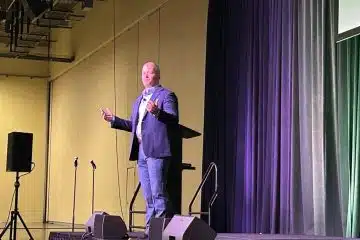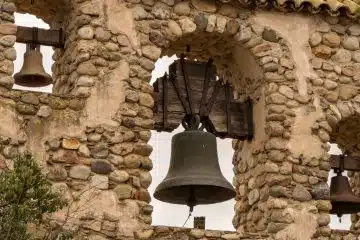Education collaborative featured on national stage
Friday, November 13, 2009
By David Eck
DAYTON DEANERY — The Dayton Catholic Education Collaborative, now in its third year, is sharing its story of helping to strengthen Catholic education in Dayton with a national audience.
The collaborative was part of the Selected Programs for Improving Catholic Education (SPICE) conference last summer and was featured in the September/October issue of Momentum, the official journal of the National Catholic Education Association.
The SPICE conference, which was held at Boston University, attracted Catholic school administrators and educators from across the nation. The conference focuses on initiatives in Catholic education.
“It gave (the collaborative) some credibility in terms of what we’re trying to do,” said Anne Battes, collaborative president, of participating in the conference. “Across the nation everyone is struggling with the same issues.”
 |
| Partners of the Catholic Education Collaborative meet during the annual collaborative leadership summit at Ascension Parish in May 2009. The participants included principals, pastors, board members and other school and parish leaders. (Courtesy photo) |
Key challenges facing Catholic education include maintaining enrollment, financial viability and affordability, funding of Catholic schools in the future and how Catholic schools meet the needs of today’s students and families, Battes said.
In addition to sharing their own initiatives, the collaborative was able to learn other approaches to the issues by participating in the conference.
The collaborative helps its partner schools in the Dayton area to work together on areas of professional development for teachers and administrators, purchasing power and student enrichment. Benefits include cost savings through vendor savings programs, professional development and enrollment management opportunities. The effort currently includes 19 elementary schools and four high schools.
“We’ve actually grown in terms of the number of schools,” Battes said. “It’s gone beyond the Dayton Deanery a little bit.”
The collaborative holds twice-yearly professional development days for educators, and last August more than 700 administrators and faculty attended. This effort not only provides continuing education for teachers but also promotes a sense of community among faculty members in the collaborative.
Another direct benefit to the partner schools included a centralized summer school program last summer. In addition to providing a centralized program, it was also a way to evaluate students’ academic level and follow their progression, Battes said.
In addition to grants for operations, the collaborative has been able to develop funding for specific projects, such as arts and music.
“It took two years to begin to see some of the benefits of what we’re trying to do,” Battes said. “I think we’re working more closely with our schools and our parishes in ways that we’ve not been able to do before.”
The collaborative’s relationship with the University of Dayton (UD) continues to strengthen and the collaborative turned to UD’s Business Research Group to manage a comprehensive market research study, Battes said.
The collaborative in late 2008 and early 2009 conducted a deanery-wide in-depth market research survey to measure parent satisfaction and determine what characteristics of Catholic schools are most important to parents. Every parent/guardian of a pre-kindergarten through 12th-grade student in the deanery received a survey. Numerous focus groups involving both Catholic and non-Catholic parents were also conducted.
“We are delighted to have this vast amount of data at the aggregate level but are just as pleased that we were able to disaggregate the data and provide each school with individual school and parish statistics,” said Laurie Cornett Cross, enrollment and marketing manager for the collaborative. “One of the things that came out strongly in this study is that parents send their children to our schools because they want a quality education integrated with Catholic faith formation. Religious emphasis is one of the characteristics parents most value in our schools.”
Collaborative officials are developing a three-year strategic plan and have created 10 key dimensions of a Catholic school as a blueprint for the future. The dimensions include: mission, vision and culture; governance; leadership; religious formation and education; curriculum instruction and assessment; faculty and professional development; student and family support; finances; facilities; and stewardship, development and marketing.
“It is only with the continued leadership of our pastors, educators, key volunteers and community partners that we can continue to make the progress we have to date,” Battes said. “We know the journey ahead may be difficult, but as always, we look to the Holy Spirit to guide us.”
David Eck can be reached at [email protected].









